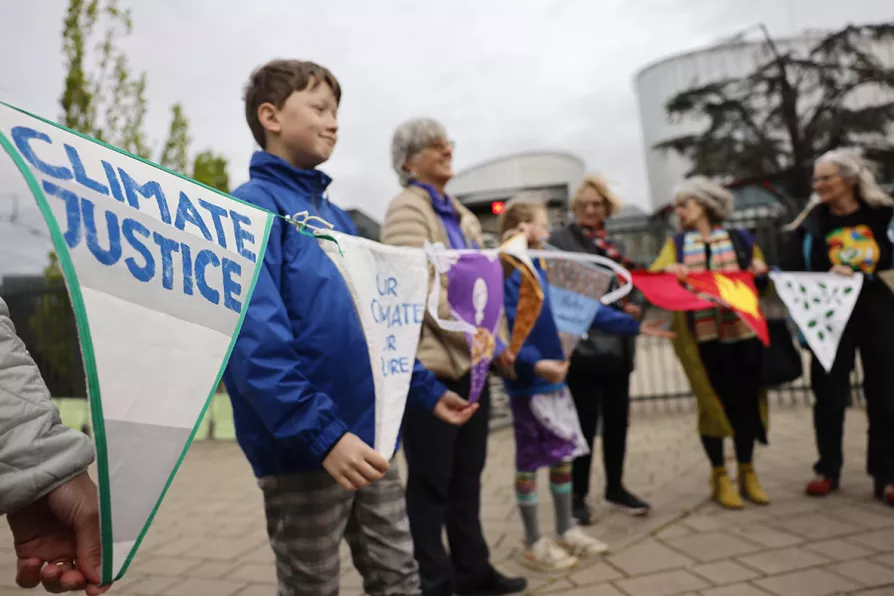Landmark European court ruling says countries must better protect people from climate change

 People demonstrate outside the European Court of Human Rights, April 9, 2024 in Strasbourg, eastern France
People demonstrate outside the European Court of Human Rights, April 9, 2024 in Strasbourg, eastern France
EUROPE’S highest court of human rights ruled today that countries must better protect their people from the consequences of climate change.
The European Court of Human Rights decision sides with a group of Swiss women against their government in a landmark ruling that could have implications across the continent.
The court said Switzerland had failed to comply with its duties to combat climate change and meet emissions targets.
Similar stories

When it comes to extreme weather events, from wildfires to flash floods, it’s firefighters who are on the front line of defence, but services have been cut to the bone, and government is not taking seriously its responsibility for the environment, says STEVE WRIGHT













